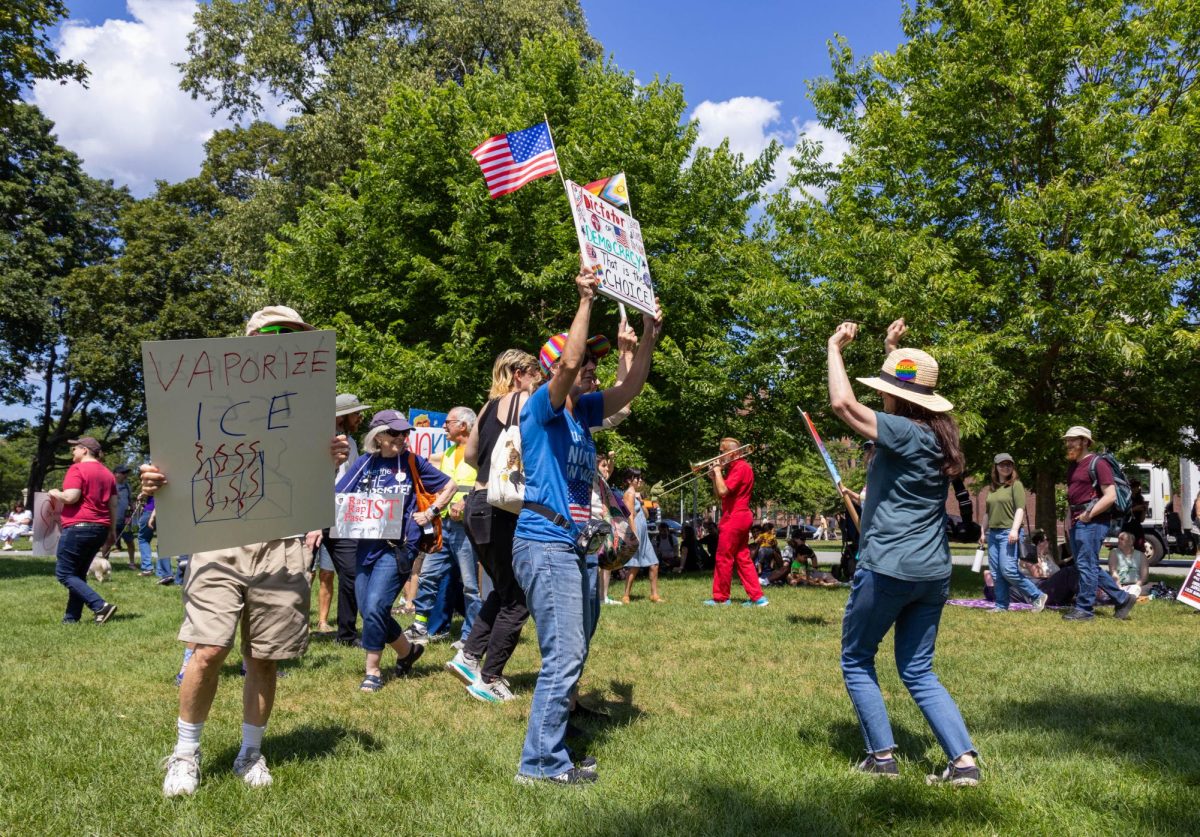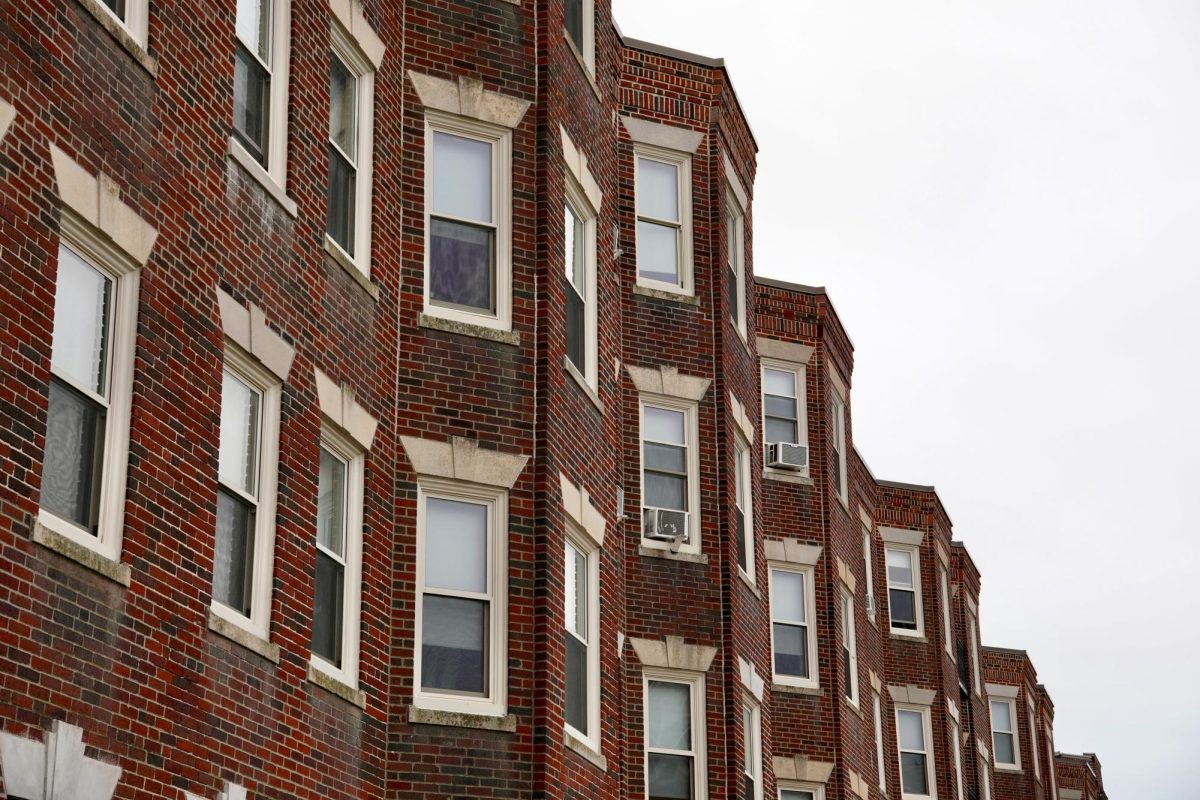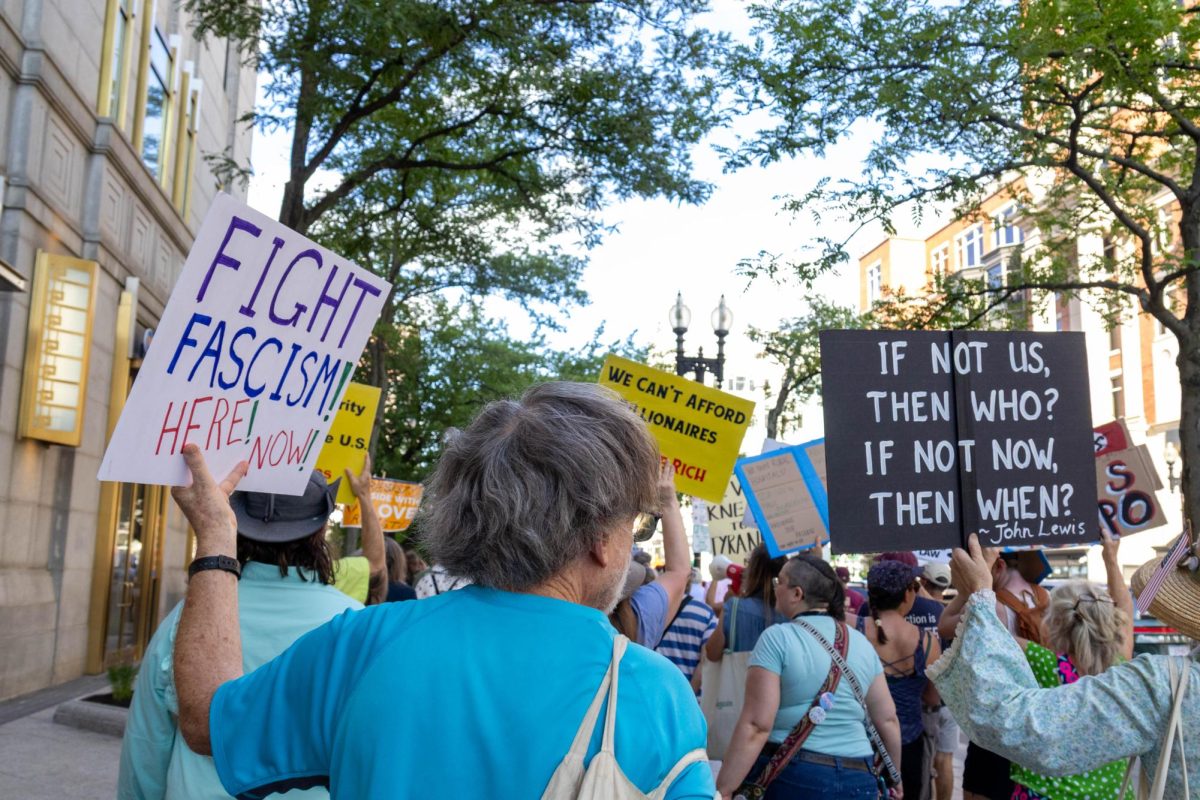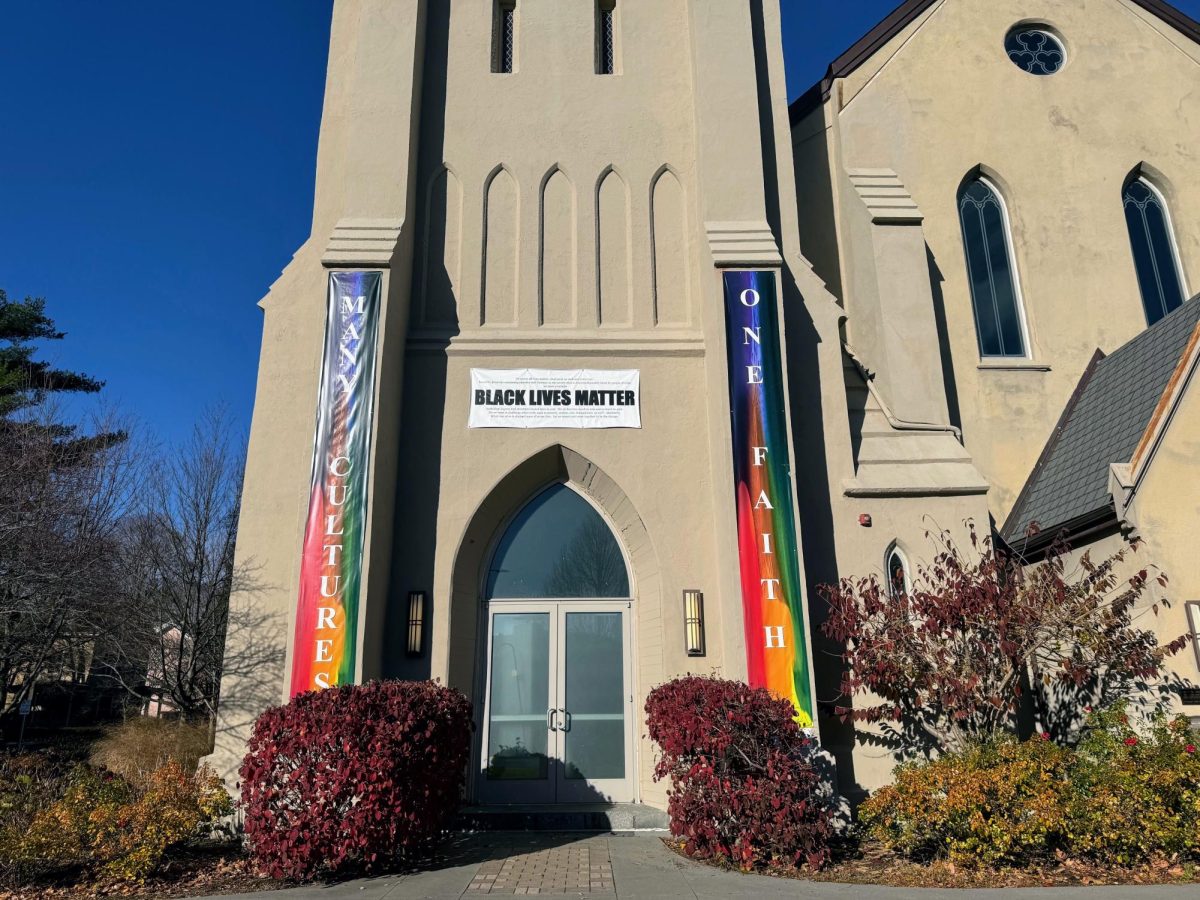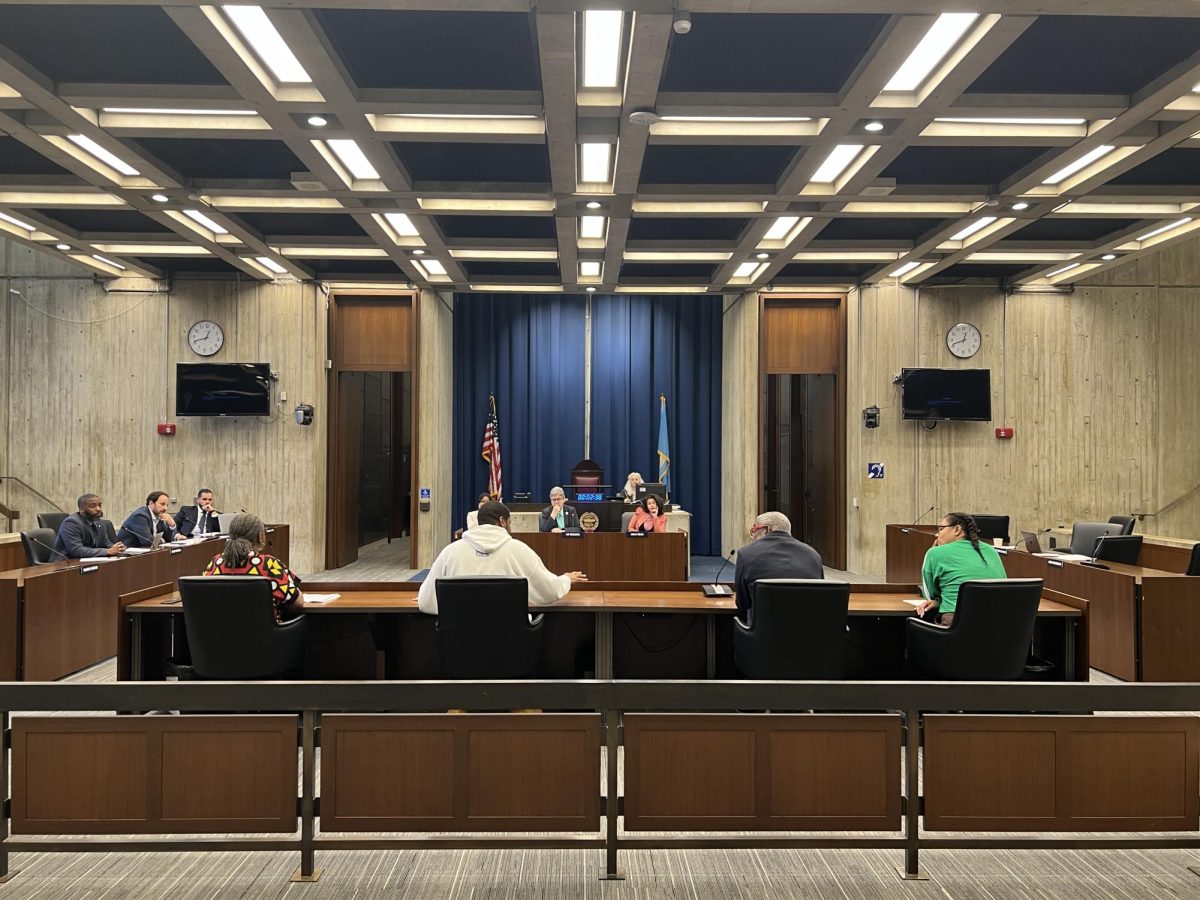Cambridge Common burst with life last Saturday, Aug. 2, as more than 100 people sat in the grass listening to live music, enjoying free ice cream and talking to various organizations. This was not a typical celebration of summer, but a festival of nonviolent resistance.
Rage Against the Regime was an opportunity for people who oppose the current administration to come together in joy at a time that often feels deprived of it. Different organizations, such as Mass 50501, Act on Mass and Boston Indivisible, informed attendees of their work and ongoing goals. The festival emphasized channeling rage into peaceful action through education and community initiatives.
“Come for the festival. Stay for the resistance,” reads the Mass 50501 website.
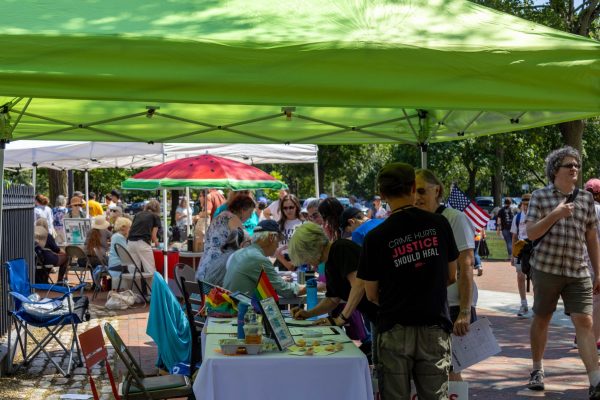
Surrounding the park’s Civil War Monument were about 20 local groups, each with its own mission for resisting actions taken by President Donald Trump’s administration, from supporting mutual aid to promoting abortion rights.
“I’d really give the Mass 50501 group a lot of credit for thinking about what to do differently right now,” said Nancy Alach, a designated peacekeeper for the event. “I think people are kind of tired of showing up for regular rallies with lots of speeches and it’s the summer and hot out, so this festival atmosphere is totally different than any of the other protests.”
Having peacekeepers has become a common practice at protests across the country. Typically volunteers or members of an organizing group, peacekeepers help to maintain order and advocate for nonviolence throughout the demonstration.
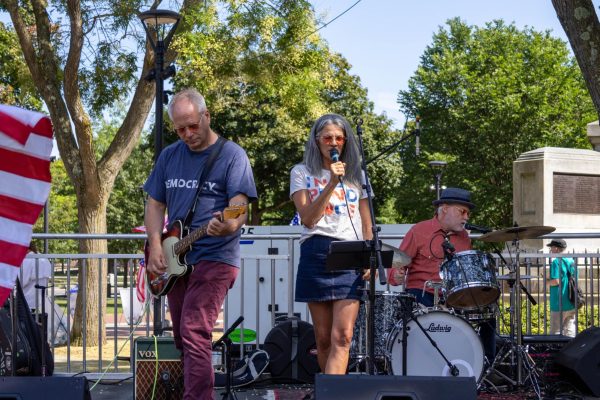
Performers, including Evan Greer, Ghosts and Shadows, and Kylie Ariel Bemis, passionately read poetry and sang songs to a crowd scattered throughout the grass. Both older adults and younger teenagers visited each table, learning from the organizations and discovering ways to get involved. An ice cream truck handed out free frozen treats to the first 1000 attendees, and a plethora of art supplies were available for sign-making.
“I appreciate whenever we have the music, that’s a nice focal point for everybody and it’s a part of the uplifting, as opposed to the rage,” said Ruth Pryor, an attendee from western Massachusetts. “It just makes everybody feel good and positive, and say, ‘let’s keep going.’”

Many attendees have marched and rallied in protest of the Trump administration before. Boston and Cambridge have hosted several demonstrations against the current U.S. government this summer alone. Saturday’s festival was different. Smiles replaced furrowed brows, signs were plastered with jokes rather than desperate pleas, and hope felt tangible through songs and laughter.
“I think joy is incredibly important, especially when things feel very scary and there’s just constant assaults from Trump and the administration. I think part of what they are doing is trying to make people feel hopeless and just give up, so doing things that make people feel joyful and connected are super important in helping us stay strong to keep fighting against what we have to fight against right now,” Alach said.
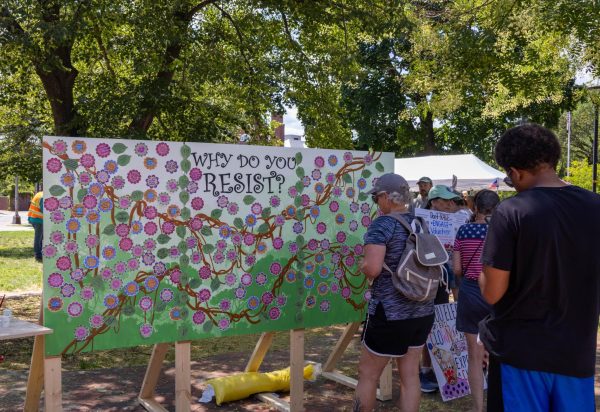
Between the organizations’ tables stood a big board with words at the top asking, “Why do you resist?” Scribbled sticky notes reading, “for my kids,” “for our beautiful and brilliant immigrants,” “because I love my country,” “to keep democracy” and “because I can’t do nothing,” covered the board.
“There are so many, even within our movement, ways that we need to educate each other and think more strategically,” said Evan Greer, a trans and queer activist, writer, and musician. “It’s not just about what’s right and what’s wrong, but it’s how do we actually do stuff that matters and makes a difference.”
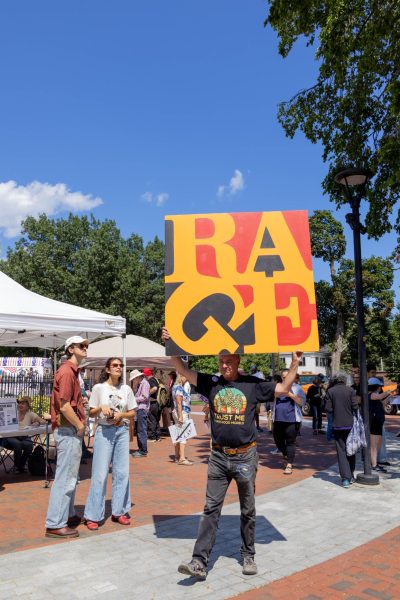
Education is integral to a successful social movement, like the ongoing protests against President Trump and his political allies, according to many scholars, including Tricia Niesz’s Education as Social Movement Tactic, Target, Context, and Outcome. Massachusetts has many local initiatives that combat controversial policies such as increased ICE raids and removing “X” gender markers from passports. The festival’s primary goal was to make people aware of them and empower attendees during politically uncertain times.
“So much is happening right now that’s really terrible, but I think people need to be informed about what is fact,” Alach said. “The Trump administration is so loose with not caring about facts at all, so I feel like we have to really be armed with factual information.”
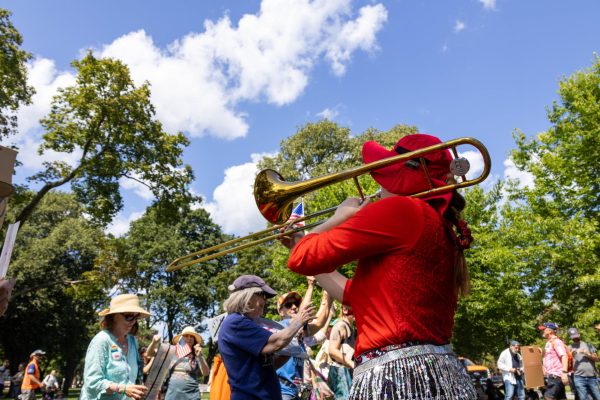
With a large stage and even larger crowd, music played a crucial role in proliferating attendees’ joyous attitudes and hopeful perspectives.
“Music and activism have always been really inextricably linked for me, and if you look throughout history, every effective social movement has had this drum beat of music, dance, culture and art,” Greer said.
Many attendees said art and creativity are essential to their ongoing fight for democracy. Empowerment encourages action, but it may falter as fear and rage continue less than a year into Trump’s presidency. Attendees said events that focus on community building, hope and resilience remind people to keep using their collective voices.
“I always appreciate an opportunity to use music, not just as a tool to inform people, but also to heal our hearts a little bit, and remind us that there are beautiful things in this world; there are things worth fighting for,” Greer said.


